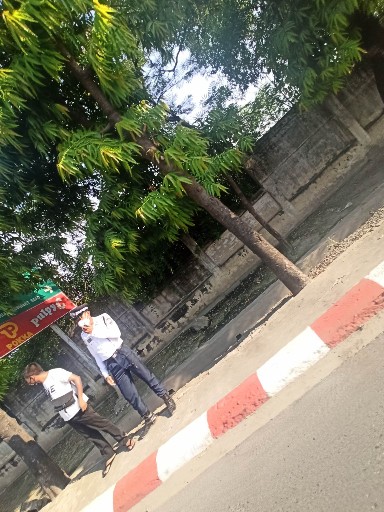
Global collaboration and the challenges associated with artificial intelligence (AI) are critical topics as countries and organizations navigate the rapid development and deployment of AI technologies.
The interconnectedness of our world means that AI’s impacts are felt across borders, provoking both opportunities for partnership and significant challenges that require coordinated efforts. Here are some key aspects regarding global collaboration and the challenges presented by AI:









### Global Collaboration in AI
1. **Information Sharing and Best Practices**:
– Organizations and countries can collaborate to share knowledge, research findings, and best practices on AI development and implementation. This can accelerate innovations while ensuring ethical considerations are prioritized.
2. **Joint Research Initiatives**:
– International partnerships can lead to joint research projects, addressing global challenges like climate change, health crises (e.g., pandemics), and sustainable development goals (SDGs). Collaborative research can combine expertise from different regions and sectors.
3. **Standardization of AI Practices**:
– Establishing international standards for AI development, data privacy, algorithms, and ethical guidelines can promote interoperability and ensure that AI systems are developed responsibly, minimizing risks associated with misuse.
4. **Global Governance Frameworks**:
– The establishment of global governance frameworks for AI is crucial. Organizations such as UNESCO, the OECD, and the European Union are working on policy guidelines and ethical principles for AI that can be adopted globally.
5. **Addressing Global Inequalities**:
– Collaborations can focus on addressing inequalities in AI access and capabilities, especially between developed and developing nations. Initiatives could support capacity building in underrepresented regions, ensuring that AI technologies are developed and deployed in ways that are equitable and inclusive.
6. **Crisis Response and Humanitarian Aid**:
– AI can be utilized in disaster response and humanitarian efforts through predictive analytics, resource allocation modeling, and efficient logistics. Collaborative efforts can harness AI to improve response times and outcomes in crises.
7. **Intergovernmental and Multilateral Initiatives**:
– Countries can engage in multilateral diplomatic efforts to discuss AI implications, establish agreements on responsible AI use, and collaborate on shared challenges surrounding cybersecurity, misinformation, and ethical AI.
### Challenges in Global Collaboration on AI
1. **Regulatory Divergence**:
– Different countries have varying regulations regarding AI, data protection, and privacy. This can create challenges for international companies and hinder collaborative efforts, as organizations must navigate a complex landscape of laws.
2. **Ethical Differences**:
– Ethical norms and values regarding AI may differ significantly between cultures and countries, which can complicate consensus-building on best practices and governance frameworks for AI deployment.
3. **Security and Geopolitics**:
– AI is increasingly viewed through the lens of national security. Countries may prioritize their technological advancements in AI for competitive advantage, which could lead to tensions and reduced collaboration.
4. **Resource Disparities**:
– Not all countries have the same resources or technological infrastructure, leading to disparities in AI research, development, and implementation. This gap may hinder the collaborative efforts necessary to address global challenges.
5. **Job Displacement Concerns**:
– The promise of AI-driven automation raises concerns about job losses, particularly in sectors heavily reliant on repetitive tasks. This could create resistance to collaboration, especially from regions where the economic impact will be most pronounced.
6. **Cybersecurity Risks**:
– Increased connectivity and collaboration can expose vulnerabilities to cyber attacks. Ensuring the security of AI systems and the data they handle is paramount, requiring global cooperation to combat threats.
7. **Misinformation and Manipulation**:
– The spread of misinformation via AI, including deepfakes and automated bots, can undermine public trust and democratic institutions. Combatting this requires coordinated efforts to develop tools and regulations that mitigate these risks.
8. **Global Governance Mechanisms**:
– The lack of a comprehensive global governance mechanism for AI creates challenges in addressing emerging issues effectively. There is an ongoing need for frameworks that can harmonize approaches across nations.
### Conclusion
Global collaboration on AI presents a unique blend of opportunities and challenges that require a concerted effort from governments, businesses, researchers, and civil society. By fostering international partnerships, sharing knowledge, and creating inclusive governance frameworks, stakeholders can harness AI’s potential to address pressing global issues. However, navigating regulatory differences, ethical considerations, security concerns, and resource disparities remains critical to realizing the benefits of a cooperative global approach to AI development and deployment. Engaging in open dialogue and collaborative initiatives can help manage these complexities and pave the way for responsible AI use that serves humanity as a whole.


Leave a Reply